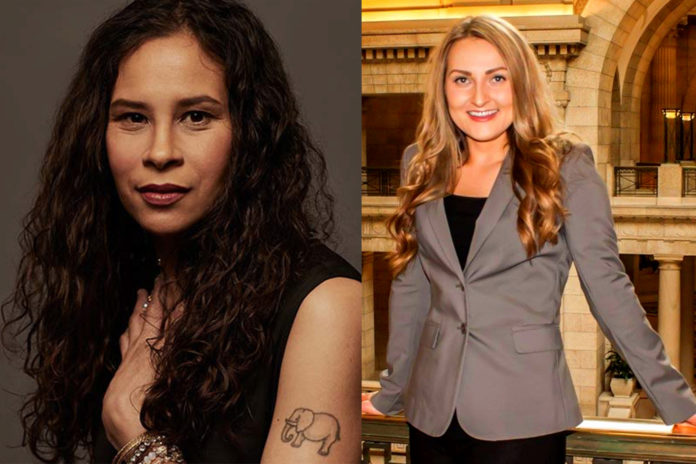

St. Thomas University’s Black Student Association hosted the second part of its Breaking the Stereotypes speaker series on Feb. 25 through Zoom, with 23 people attending the event.
STUBSA organized the event in recognition of Black History Month with a question-and-answer period, hosted by Emmanuella Idemudia, afterwards.
Sydona Chandon, vice-president of the STUBSA, said the purpose of the event was to focus on eliminating stereotypes of Black people. Chandon started the presentation by welcoming and introducing both speakers.
The first speaker was El Jones – a professor, author, activist and poet laureate. Following her was Christina Szurlej, an associate professor in the human rights department and director of the Atlantic Human Rights Centre at STU.
“Szurlej has been a committed ally to the Black community and has assisted the Black Student Association at STU with their operations by overseeing the association and helping to promote awareness of issues we can’t continue to face,” said Chandon during the event.
Szurlej said in an email she was hesitant on participating since she didn’t want to take the place away from a person of colour, but Black students said they wanted the perspective of an ally.
“I recommended splitting my time with professor El Jones and she was astonishing, as I knew she would be,” said Szurlej in an email.
During the 50-minute presentation, Jones started by reciting her own poems. The first poem was written about the ancestors of Africville, Nova Scotia.
“It’s kind of a poem in two parts. The first part is really describing what happened to Africville – which is the Black community that was destroyed and disappeared along the shore of the Bedford Basin – and the second part is a little bit of a tribute to the ongoing fight of our ancestors,” said Jones during the event.
Another poem she recited was written for the Lifers, which is a group of Black and Indigenous prisoners serving life sentences. The Lifers asked Jones if she had a poem about juries, which inspired her to write one about many of the cases in Canada and the justice system.
Jones said her inspiration for her poetry was that she had something to say.
“I just woke up one morning with a poem in my head,” she said.
After Jones’ reciting, Szurlej followed and said she wanted to share her perspective as an ally.
She began her discussion of privilege, microaggressions and the definition of racism. Szurlej started by asking the audience to reflect on how white privilege affects them daily.
She then defined the term microaggressions. This term was coined by Chester Pierce in the ‘70s.
Szurlej said this deals with terms that are invalidating, insulting and insensitive.
“These terms stem from negative assumptions based on a perceived group membership, and what I mean by perceived group membership is even if you look at someone and think of a particular group, that does not mean they actually are,” said Szurlej. “They could be someone born in Canada that you’re labelling without any reason, just based on your own stereotypes and presumptions.”
Szurlej proceeded to formally define the terms prejudice, discrimination and racism. She said privilege is not something that is earned or deserved, it depends on where in the world a person is born or what socio-economic status they have.
“It’s as though we’re all in a race and some people undeservedly have a head-start in that race for no reason,” said Szurlej during her presentation.
“I don’t think it’s fair to hold that against somebody.”
